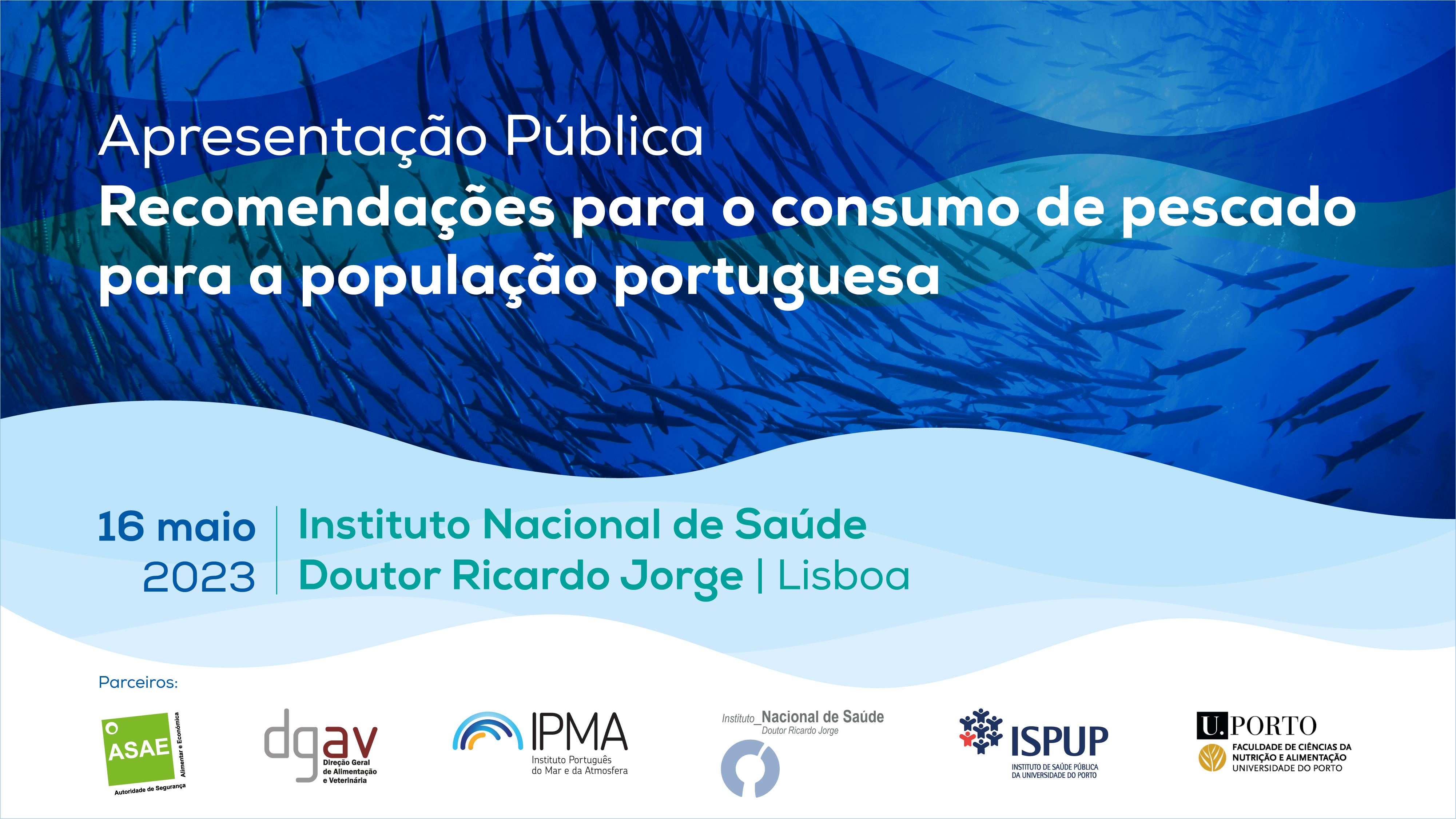A working group promoted by the Directorate-General for Food and Veterinary (DGAV), which included the Food and Economic Safety Authority (ASAE), the Faculty of Nutrition and Food Sciences of the University of Porto (FCNAUP), the National Institute of Health Doutor Ricardo Jorge (INSA), the Portuguese Institute for the Sea and Atmosphere (IPMA), and the Institute of Public Health of the University of Porto (ISPUP), developed a set of recommendations for fish consumption for the Portuguese population.
The recording of the event on Youtube at: https://www.youtube.com/live/f1WR03Hqy1M?si=JBapon-p4Mk1OfQy
According to the conclusions of the study carried out, fish consumption has health benefits, but some species have a high mercury content that may pose risks associated with cognitive development and should therefore be avoided by vulnerable groups such as pregnant women, breastfeeding women, and young children.
According to the authors of this work, the consumption of seafood — which includes fish, mollusks, and crustaceans — has health benefits, reducing the risk of coronary heart disease and contributing to proper fetal neurodevelopment. Nevertheless, some species, such as fresh tuna (not canned), dogfish, swordfish, blue ling, smooth-hound, black scabbardfish, and blue shark, contain high levels of mercury, which may pose health risks, particularly to cognitive development. These species should therefore be avoided by pregnant women, breastfeeding women, and young children. For these vulnerable groups, specialists recommend consuming seafood 3 to 4 times per week, while for the general population seafood consumption should be more frequent, up to 7 times per week.
In the view of the researchers, fish consumption remains essential, but it is necessary to make the right choices regarding species and frequency of intake. Sardines and mackerel are some of the options to be prioritized, as they contain less mercury and higher levels of omega-3 fatty acids, which contribute to better cognitive development in children and the prevention of cardiovascular disease in adults. Species such as blue ling, cod, horse mackerel, cuttlefish, croaker, gilthead seabream, pouting, squid, hake, octopus, ray, redfish, and sea bass are other options that generally present low mercury levels.
The recommendations for fish consumption for the Portuguese population were defined based on the frequency of consumption by the Portuguese, obtained through the national survey IAN-AF. The data regarding mercury content were determined through samples collected and analyzed as part of official controls and various scientific studies. These data were then integrated into a risk-benefit assessment associated with fish consumption by the Portuguese population. The research supporting these recommendations was published in the British Journal of Nutrition and involved researchers from all national institutions concerned. It can be accessed through this link.
(document available in Portuguese only)
